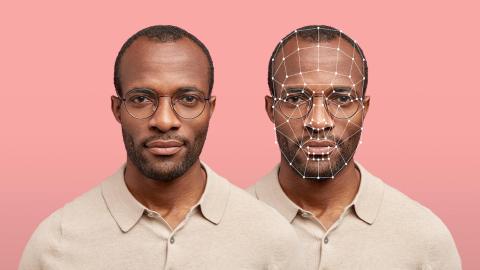AI avatars bring deepfakes to the business world

Credit: Wayhome Studio / Mspoint / Adobe Stock
This article was originally published on our sister site, Freethink.
A financial consulting firm has created AI avatars for its staff, which they can use to quickly create deepfakes of themselves for presentations, emails, and more.
The challenge: During the pandemic, remote work became the norm at many companies, and meetings that might have once taken place over lunch happened over the internet instead.
This transition was more difficult for some industries than others, and those that traditionally relied on face-time with clients to build relationships and secure deals may have struggled to find their footing.
“As opposed to sending an email and saying ‘Hey we’re still on for Friday,’ you can see me and hear my voice.”
—JARED REEDER
“[W]hile much has been written about how to collaborate remotely with coworkers … companies still are trying to figure out the best way to connect with clients over teleconferencing platforms,” Snjezana Cvoro-Begovic and James Hartling, execs at the software company Cognizant Softvision, wrote in Fast Company.
Navigating this new online-first world isn’t just a temporary problem, either — even if the pandemic ended tomorrow, experts predict that the emphasis on remote work would stick around.
AI avatars: EY, the firm formerly known as Ernst & Young, thinks “artificial reality identities” (ARIs) are part of the solution.
To create the AI avatars, you just read a script in front of a camera for about 40 minutes. Software developed by U.K. startup Synthesia then uses that data to create a virtual double of you.
After that, the double can be told to say anything you type out, even if it’s written in a language you don’t speak.
Simple Video Personalization Platform – Synthesiawww.youtube.comPersonal touch: Synthesia’s AI avatars aren’t perfect, but EY employees have embraced them in emails, presentations, and more.
“We’re using [them] as a differentiator and reinforcement of who the person is,” EY employee Jared Reeder told Wired. “As opposed to sending an email and saying ‘Hey we’re still on for Friday,’ you can see me and hear my voice.”
The company has also fulfilled partners’ requests for their own AI avatars, but only time will tell if the digital doubles have staying power — or end up being a pandemic-era novelty.





